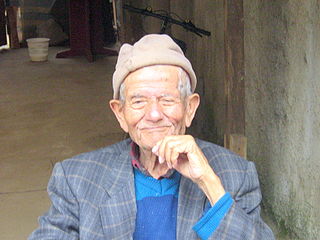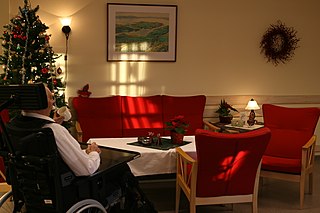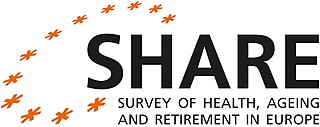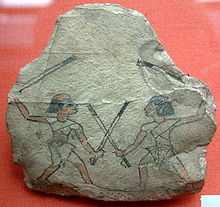
Retirement is the withdrawal from one's position or occupation or from one's active working life. A person may also semi-retire by reducing work hours or workload.

Old age is the range of ages for persons nearing and surpassing life expectancy. People of old age are also referred to as: old people, elderly, elders, seniors, senior citizens, or older adults.
The University of the Third Age (U3A) is an international movement whose aims are the education and stimulation of mainly retired members of the community — those in their third 'age' of life.

Population ageing is an increasing median age in a population because of declining fertility rates and rising life expectancy. Most countries have rising life expectancy and an ageing population, trends that emerged first in developed countries but are now seen in virtually all developing countries. That is the case for every country in the world except the 18 countries designated as "demographic outliers" by the United Nations. The aged population is currently at its highest level in human history. The UN predicts the rate of population ageing in the 21st century will exceed that of the previous century. The number of people aged 60 years and over has tripled since 1950 and reached 600 million in 2000 and surpassed 700 million in 2006. It is projected that the combined senior and geriatric population will reach 2.1 billion by 2050. Countries vary significantly in terms of the degree and pace of ageing, and the UN expects populations that began ageing later will have less time to adapt to its implications.

Elderly care, or simply eldercare, serves the needs of old adults. It encompasses assisted living, adult daycare, long-term care, nursing homes, hospice care, and home care.

Sexuality in older age concerns the sexual drive, sexual activity, interests, orientation, intimacy, self-esteem, behaviors, and overall sexuality of people in middle age and old age, and the social perceptions concerning sexuality in older age. Older people engage in a variety of sexual acts from time to time for a variety of reasons. Desire for intimacy does not disappear with age, yet there are many restrictions placed on the elderly preventing sexual expressions and discouraging the fulfillment of sexual needs. Sexuality in older age is often considered a taboo, yet it is considered to be quite a healthy practice; however, this stigma can affect how older individuals experience their sexuality. While the human body has some limits on the maximum age for reproduction, sexual activity can be performed or experienced well into the later years of life.
This article focuses on the situation of elderly people in Japan and the recent changes in society.

A retirement community is a residential community or housing complex designed for older adults who are generally able to care for themselves; however, assistance from home care agencies is allowed in some communities, and activities and socialization opportunities are often provided. Some of the characteristics typically are: the community must be age-restricted or age-qualified, residents must be partially or fully retired, and the community offers shared services or amenities.

The Survey of Health, Ageing and Retirement in Europe (SHARE) is a multidisciplinary and cross-national panel database of micro data on health, socio-economic status and social and family networks. In seven survey waves to date, SHARE has conducted approximately 380,000 interviews with about 140,000 individuals aged 50 and over. The survey covers 28 European countries and Israel.

Frailty is a common geriatric syndrome that embodies an elevated risk of catastrophic declines in health and function among older adults. Frailty is a condition associated with ageing, and it has been recognized for centuries. It is a marker of a more widespread syndrome of frailty, with associated weakness, slowing, decreased energy, lower activity, and, when severe, unintended weight loss. As a frequent clinical syndrome in the elderly, various health risks are linked to health deterioration and frailty in older age, such as falls, disability, hospitalization, and mortality. Generally, frailty refers to older adults who lose independence. It also links to the experiences of losing dignity due to social and emotional isolation risk. Frailty has been identified as a risk factor for the development of dementia.

Ageing is the process of becoming older. The term refers mainly to humans, many other animals, and fungi, whereas for example, bacteria, perennial plants and some simple animals are potentially biologically immortal. In a broader sense, ageing can refer to single cells within an organism which have ceased dividing, or to the population of a species.
Étienne-Émile Baulieu is a French biochemist and endocrinologist who is best known for his research in the field of steroid hormones and their role in reproduction and aging.

Ageism is bias against, discrimination towards, or bullying towards individuals and groups on the basis of their age. The term was coined in 1969 by Robert Neil Butler to describe discrimination against older people. The term is patterned on sexism and racism. Butler defined "ageism" as a combination of three connected elements. Originally it was identified chiefly towards older people, old age, and the aging process; discriminatory practices against older people; and institutional practices and policies that perpetuate stereotypes about elderly people.
The rights of older persons are the entitlements and independence claimed for senior citizens. Elderly rights are one of the fundamental rights of India. The International Day of older persons is celebrated annually on October 1.
HelpAge India is an Indian organization focused on the concerns of elders and support geriatric initiatives. Established in 1978, The aim is to serve disadvantaged elders in a holistic manner, enabling them to live active, dignified, and healthier lives.

The International Federation on Ageing is an international non-governmental organization founded in 1973 and based in Toronto, Ontario, Canada working in the field of ageing, older persons and ageing-related issues such as ageism, The intent of the organisation is for NGOs, the corporate sector, academia, government, and individuals working together to make, according to the IFA’s mission statement, a "change for older people throughout the world by stimulating, collecting, analyzing, and disseminating information on rights, policies and practices that improve the quality of life of people as they age". The IFA has General Consultative Status at the United Nations Economic and Social Council (ECOSOC).
Aging has a significant impact on society. People of different ages and gender tend to differ in many aspects, such as legal and social responsibilities, outlooks on life, and self-perceptions. Young people tend to have fewer legal privileges, they are more likely to push for political and social change, to develop and adopt new technologies, and to need education. Older people have different requirements from society and government, and frequently have differing values as well, such as for property and pension rights. Older people are also more likely to vote, and in many countries the young are forbidden from voting. Thus, the aged have comparatively more, or at least different, political influence.

In the field of ageing studies, activist ageing refers to activism and research that empowers the elderly. This approach investigates how ageing is imagined, how Ageism operates, and how elders respond to exclusion.
Elder rights are the rights of older adults, who in various countries are not recognized as a constitutionally protected class, yet face discrimination across many aspects of society due to their age.
The Later Life Workplace Index (LLWI) serves as a measurement instrument for age-inclusive organizational practices and working conditions for the successful employment of age-diverse workforces. Especially in the light of demographic change and shortages of skilled workers, the employment of older workers gains importance. The index summarizes practices and working conditions that are beneficial for an older workforce by fostering their health, motivation, and performance. A corresponding questionnaire containing 80 items can be used to evaluate organizational practices on nine domains.












